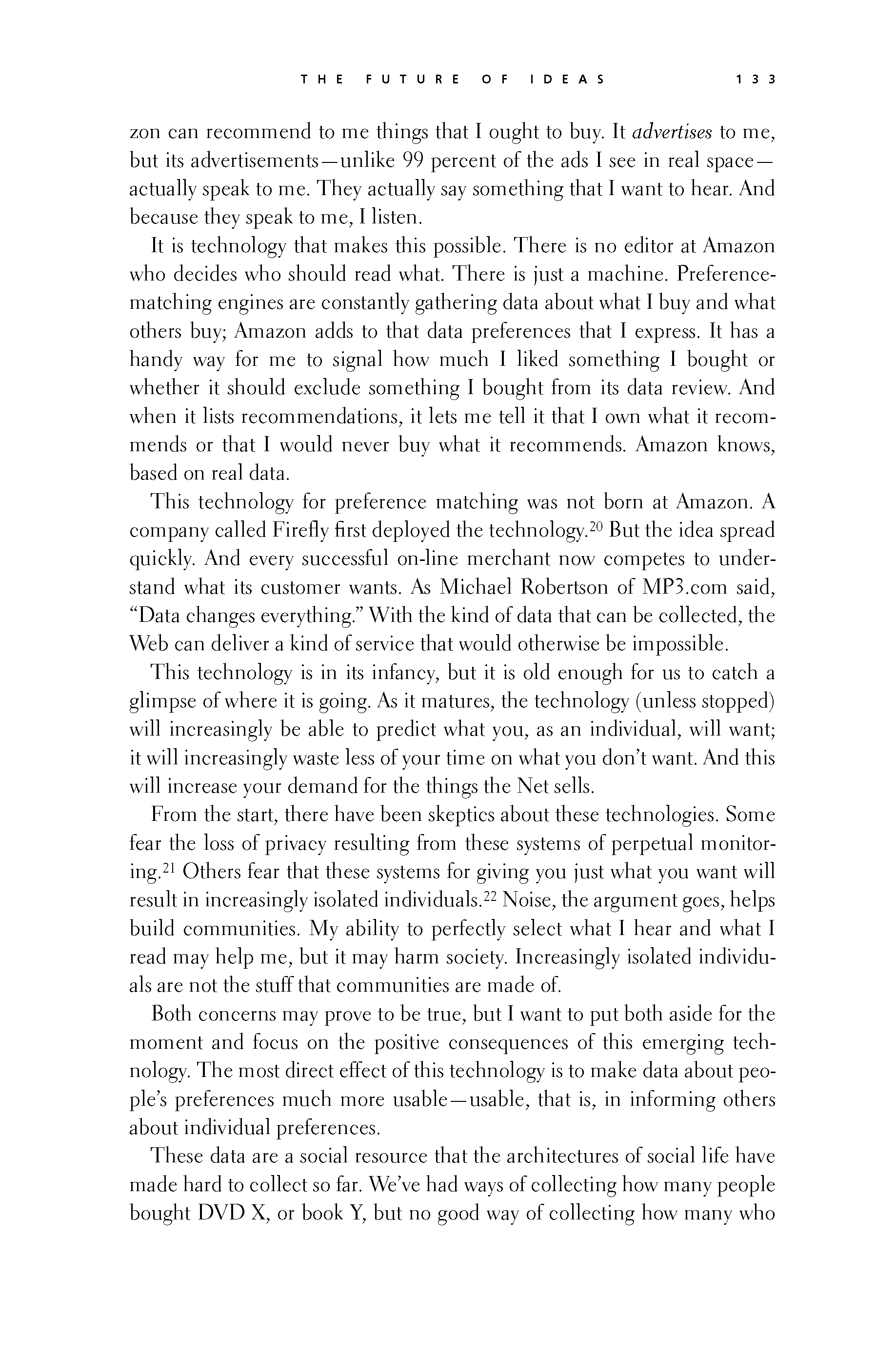 p132 _
-chap- _
toc-1 _
p133w _
toc-2 _
+chap+ _
p134
p132 _
-chap- _
toc-1 _
p133w _
toc-2 _
+chap+ _
p134
zon can recommend to me things that I ought to buy. It _advertises_ to me,
but its advertisements -- unlike 99 percent of the ads I see in real space --
actually speak to me. They actually say something that I want to hear. And
because they speak to me, I listen.
It is technology that makes this possible. There is no editor at Amazon
who decides who should read what. There is just a machine. Preference-
matching engines are constantly gathering data about what I buy and what
others buy; Amazon adds to that data preferences that I express. It has a
handy way for me to signal how much I liked something I bought or
whether it should exclude something I bought from its data review. And
when it lists recommendations, it lets me tell it that I own what it recom-
mends or that I would never buy what it recommends. Amazon knows,
based on real data.
This technology for preference matching was not born at Amazon. A
company called Firefly first deployed the technology.[8-20] But the idea spread
quickly. And every successful on-line merchant now competes to under-
stand what its customer wants. As Michael Robertson of MP3.com said,
"Data changes everything." With the kind of data that can be collected, the
Web can deliver a kind of service that would otherwise be impossible.
This technology is in its infancy, but it is old enough for us to catch a
glimpse of where it is going. As it matures, the technology (unless stopped)
will increasingly be able to predict what you, as an individual, will want;
it will increasingly waste less of your time on what you don't want. And this
will increase your demand for the things the Net sells.
From the start, there have been skeptics about these technologies. Some
fear the loss of privacy resulting from these systems of perpetual monitor-
ing.[8-21] Others fear that these systems for giving you just what you want will
result in increasingly isolated individuals.[8-22] Noise, the argument goes, helps
build communities. My ability to perfectly select what I hear and what I
read may help me, but it may harm society. Increasingly isolated individu-
als are not the stuff that communities are made of.
Both concerns may prove to be true, but I want to put both aside for the
moment and focus on the positive consequences of this emerging tech-
nology. The most direct effect of this technology is to make data about peo-
ple's preferences much more usable -- usable, that is, in informing others
about individual preferences.
These data are a social resource that the architectures of social life have
made hard to collect so far. We've had ways of collecting how many people
bought DVD X, or book Y, but no good way of collecting how many who
[[133]]
p132 _
-chap- _
toc-1 _
p133w _
toc-2 _
+chap+ _
p134